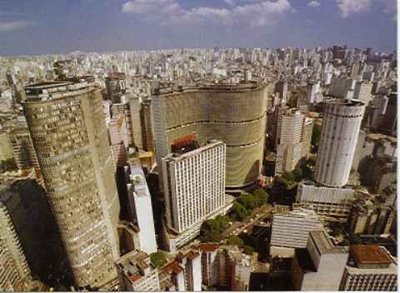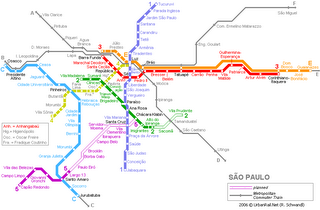Muito sono, o é a idade?: Maybe I'm Not As Resilient As I Used To Be

Translation: "So sleepy, or is it my age?"
--
Because I arrived late to school I missed the first week of classes. In an eight-week module, this is 12.5% of the term, so there is a considerable amount of catching up I've yet to do. Arriving late also meant that I missed all the student orientations, the Portuguese class (included in the tuition), and the chance to get to know everyone. Yep, I have no friends here. In all seriousness, I know a few of the international students, but since they are not Brazilian I don't really speak Portuguese enough to improve as fast as I'd like. Also, since I was staying with my cousin for the first two weeks, I spoke more English than I should have done, which didn't help the situation much.
I should really consider myself lucky for having studied Spanish so long, as I can understand a lot of things without much explanation. But knowing a related language both helps and hurts: yes, I often understand all right, but I say most everything wrong and then they answer me with gracias, which just pisses me off. Unless someone spells a word for me, in my mind it's hard not to think of the Spanish word. Spanish is something like a band-aid for now.
Another difficulty related to Portuguese is that I've had to do a considerable amount of calling on the phone to get things done, and I've simply hung up a few times on the verge of tears because I just don't understand and the person on the other end is getting paid like $2 an hour and knows I'm foreign and just couldn't care less. The same is sometimes true in face-to-face interactions. Maybe Brazilians aren't as friendly as the Spanish (ah, to be back in Spain were things were easy!), or maybe my smile did more for me at 21. I'm only 27, so it's probably not that, but whatever the problem, speaking better would do a lot to help things go better, so the urgency of enrolling in Portuguese class já is undeniable. (I would like everyone reading this to have a newfound understanding for foreigners who don't understand, especially the non-Western ones who must think we're so weird and think such horrible things about us when we speak to them disrespectfully. Don't be mean ...it really stinks when you're on the other end of that equation.)
--
The day before I flew out I was drinking a beer in my apartment and it spilled onto the keyboard of my laptop. The machine shut off when it happened, which was not good, but it was kind of working after it dried (the thing turned on, which was cause for optimism), so I packed it and figured I'd get it fixed here. I think I've written already about bureaucracy in Brazil, and the cost of making phone calls, etc., so that should serve as a context to this and all future stories. Explaining, understanding explanations and figuring out what I need to do to get my computer fixed has become the bane of my existencee. Brazilians have a different sense of service, and to add to the adjustment I have to make related to that difference, they also seem to have a propensity when they don't know the answer to a question to simply make something up. I'm sure they are trying to help, and perhaps in their minds they think they are helping in some way, but it really just makes things worse. There's nothing wrong with saying " I don't know," is there?
Anyway, it's not impossible, but highly problematic to do work without a computer, something to which I've become very accustomed. You don't realize just how much we need these machines until you no longer have one you can use when you want. Most of my reading and homework is posted on a site called Blackboard (seems to be an international success...we use the same site at Georgetown) so doing homework in a computer lab is tough. The labs are closed on weekends and during the week they shut their doors at 10 PM. When I'm there, the Brazilians talk very loudly, and there are a lot of 18 and 19 year old boys looking at porn on the Internet and laughing, and girls screaming on their cell phones about banalities of zero interest to me.
Calgon, take me away!
--
The long and short of it is that since I arrived I'm simply exhausted every day, all the time. Between the language, the cultural adaptation, encountering a challenge in the simplest of tasks, then going to school and working twice as hard to cath up, not having my own computer, yadda, yadda, yadda...I get too tired to keep my eyes open at around 10 PM, and feel so old because of it. I've lived abroad three other times, and I remember feeling exhausted like this but never so unable to brush it off. Maybe my mind is becoming more sclerotic, or maybe I'm just a little ( or a lot )more set in my ways and finding less charm in the little differences that make the world go round. Cynical grin.
This weekend I pretty much barricaded myself in my apartment and watched American TV and ate Nutella right from the jar. Maybe I'll gain a few pounds and make myself more miserable. I know this period of adjustment won't last forever, but for now (excuse the vulgarity) it sucks. That's all I can write for now...I need to go to bed (BTW, the time stamp on my posts seems to be wrong and I can't figure out how to fix it, but it is 9:30 PM).







